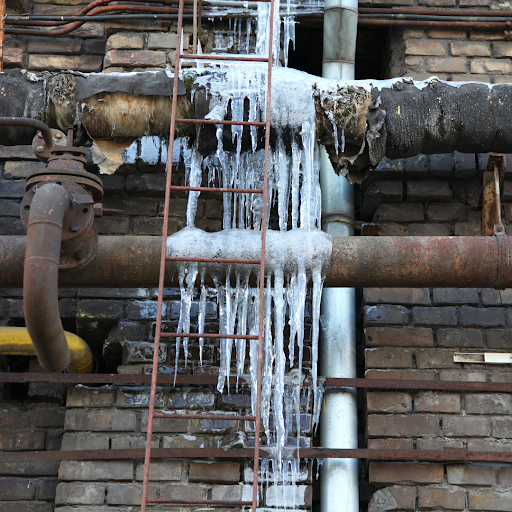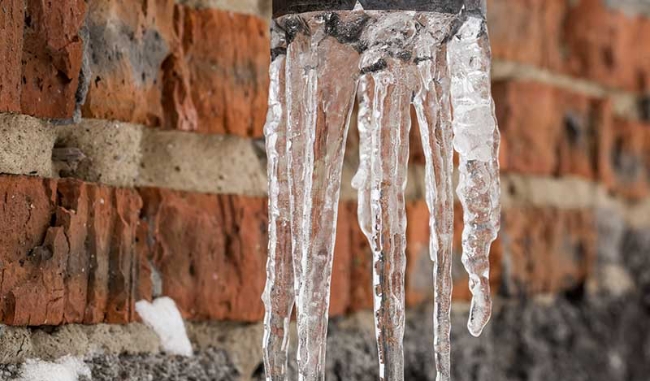Were you searching for details involving How to prepare your home plumbing for winter weather?

Winter can ruin your plumbing, specifically by freezing pipes. Right here's how to avoid it from happening and what to do if it does.
Introduction
As temperatures decrease, the threat of frozen pipes rises, possibly resulting in expensive repairs and water damage. Understanding exactly how to stop icy pipelines is crucial for homeowners in cold climates.
Prevention Tips
Shielding prone pipes
Wrap pipelines in insulation sleeves or utilize warm tape to shield them from freezing temperatures. Focus on pipes in unheated or exterior areas of the home.
Home heating techniques
Maintain interior rooms appropriately heated up, specifically areas with pipes. Open closet doors to allow cozy air to distribute around pipelines under sinks.
How to determine icy pipes
Seek decreased water circulation from taps, uncommon odors or sounds from pipelines, and noticeable frost on exposed pipelines.
Long-Term Solutions
Architectural modifications
Take into consideration rerouting pipelines away from outside walls or unheated areas. Include additional insulation to attic rooms, cellars, and crawl spaces.
Upgrading insulation
Buy top quality insulation for pipes, attics, and wall surfaces. Proper insulation assists maintain constant temperature levels and reduces the danger of icy pipelines.
Shielding Exterior Pipes
Garden hose pipes and exterior faucets
Separate and drain pipes garden pipes before wintertime. Set up frost-proof faucets or cover outdoor taps with shielded caps.
Recognizing Frozen Pipes
What causes pipes to freeze?
Pipes freeze when exposed to temperatures listed below 32 ° F (0 ° C) for extended periods. As water inside the pipes freezes, it increases, putting pressure on the pipeline walls and possibly causing them to rupture.
Risks and damages
Frozen pipes can cause water supply interruptions, residential or commercial property damage, and costly repair work. Ruptured pipes can flooding homes and trigger considerable structural damages.
Indicators of Frozen Pipeline
Identifying frozen pipelines early can avoid them from breaking.
What to Do If Your Pipes Freeze
Immediate actions to take
If you suspect icy pipes, keep taps open up to relieve pressure as the ice thaws. Utilize a hairdryer or towels taken in hot water to thaw pipelines slowly.
Final thought
Protecting against frozen pipes needs positive actions and fast feedbacks. By comprehending the causes, indications, and safety nets, house owners can safeguard their pipes during cold weather.
Helpful Tips to Prevent Frozen Pipes this Winter
UNDERSTANDING THE BASICS: WHY PIPES FREEZE AND WHY IT’S A PROBLEM
Water freezing inside pipes is common during the winter months, but understanding why pipes freeze, and the potential problems it can cause is crucial in preventing such incidents. This section will delve into the basics of why pipes freeze and the associated problems that may arise.
THE SCIENCE BEHIND FROZEN PIPES
When water reaches freezing temperatures, it undergoes a physical transformation and solidifies into ice. This expansion of water as it freezes is the primary reason pipes can burst. As the water inside the pipe freezes, it expands, creating immense pressure on the walls. If the pressure becomes too great, the pipe can crack or rupture, leading to leaks and water damage.
FACTORS THAT CONTRIBUTE TO PIPE FREEZING
Low Temperatures: Extremely cold weather, especially below freezing, increases the risk of pipes freezing. Uninsulated or Poorly Insulated Pipes: Pipes located in unheated areas, such as basements, crawl spaces, or attics, are more prone to freezing. Insufficient insulation or lack of insulation altogether exacerbates the problem. Exterior Wall Exposure: Pipes running along exterior walls are susceptible to freezing as they encounter colder temperatures outside. Lack of Heating or Temperature Regulation: Inadequate heating or inconsistent temperature control in your home can contribute to frozen pipes. PROBLEMS CAUSED BY FROZEN PIPES
- Pipe Bursting: As mentioned earlier, the expansion of water as it freezes can cause pipes to burst, resulting in significant water damage.
- Water Damage: When pipes burst, it can lead to flooding and water damage to your property, including walls, ceilings, flooring, and personal belongings.
- Structural Damage: Prolonged exposure to water from burst pipes can compromise the structural integrity of your home, leading to costly repairs.
- Mold and Mildew Growth: Excess moisture from water damage can create a favorable environment for mold and mildew growth, posing health risks to occupants.
- Disrupted Water Supply: Frozen pipes can also result in a complete or partial loss of water supply until the issue is resolved.
WHY CERTAIN PIPES ARE MORE PRONE TO FREEZING
- Location: Pipes located in unheated or poorly insulated areas, such as basements, crawl spaces, attics, or exterior walls, are at higher risk of freezing.
- Exterior Pipes: Outdoor pipes, such as those used for irrigation or exposed plumbing, are particularly vulnerable to freezing as they are directly exposed to the elements.
- Supply Lines: Pipes that carry water from the main water supply into your home, including the main water line, are critical to protect as freezing in these lines can affect your entire plumbing system.
- Underground Pipes: Pipes buried underground, such as those connected to sprinkler systems or outdoor faucets, can be susceptible to freezing if not properly insulated.
https://busybusy.com/blog/helpful-tips-to-prevent-frozen-pipes-this-winter/

I came across that piece of writing on 6 Ways to Prevent Frozen Pipes while doing research the web. Sharing is caring. Helping people is fun. Thank you for your time. Return soon.
Quote